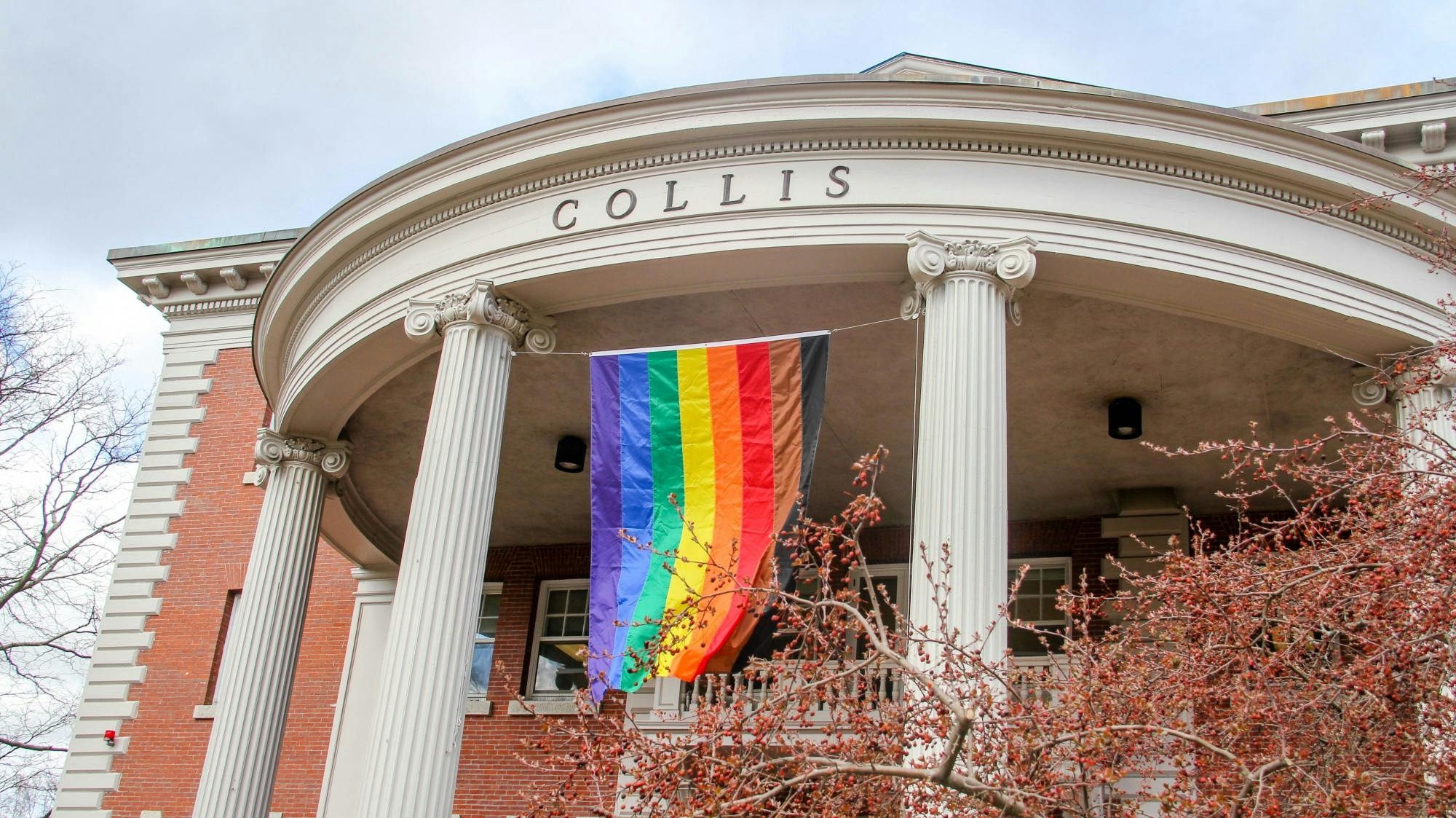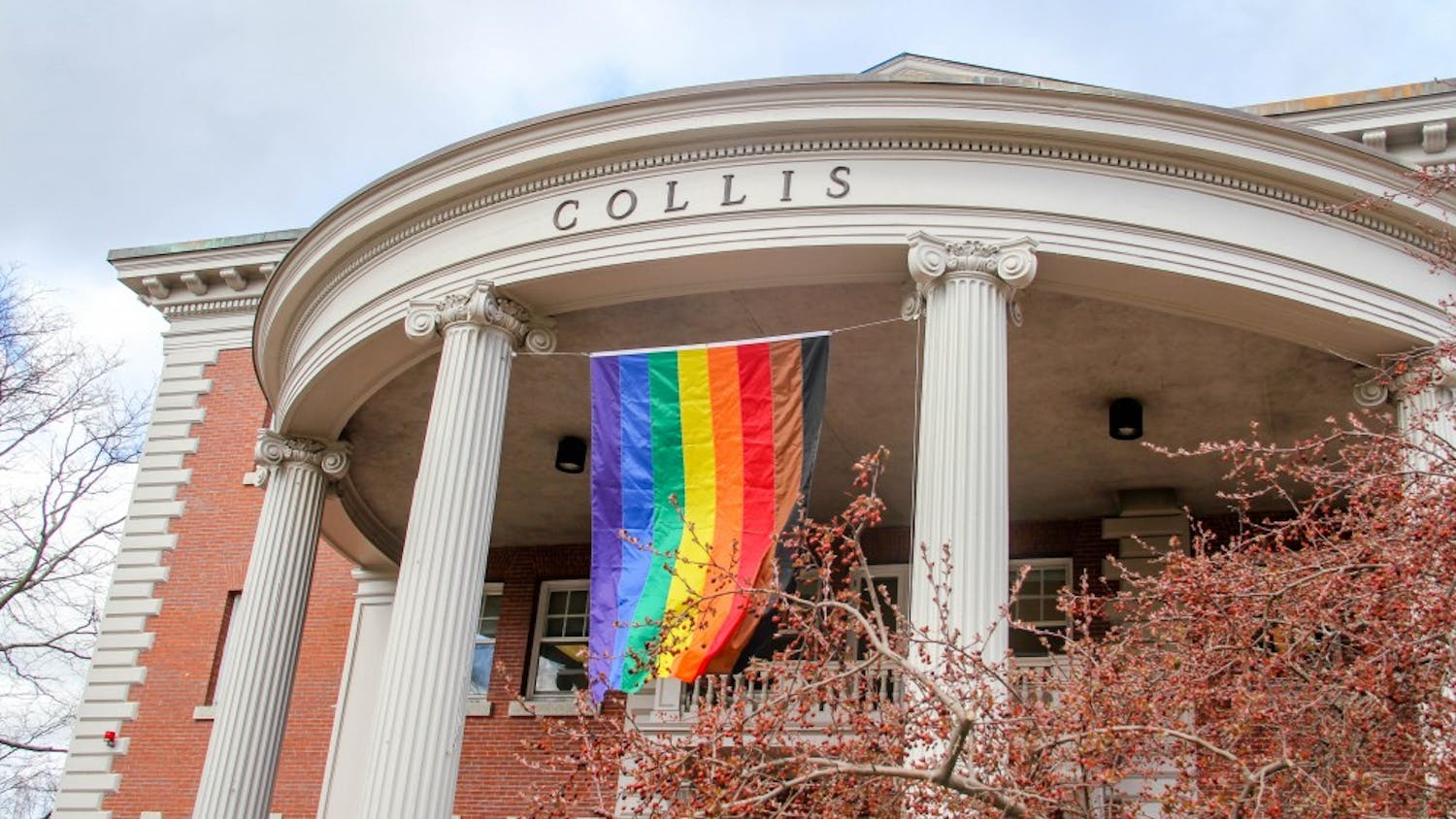From May 8 to May 31, Dartmouth is hosting its 14th annual celebration of LGBTQIA+ Pride. Members of the Pride programming committee have made adjustments to ensure that the events run smoothly in a virtual format, according to Olivia Goodwin ’21, an organizer for this year’s Pride.
The theme for this year’s Pride programming is “Seeing Queerly.” Karen Zheng ’22 said that the theme is a call for allies and others to change the “lens” through which they see the world from a “heteronormative” one to a “more inclusive” one. She added that the mission of this year’s celebration is to create a more unified queer community on campus.
On May 8, Pride kicked off its celebrations with “Divine Queers,” a Zoom discussion centered on applying a “queer lens” to spirituality and religion with a focus on the theme of resilience.
“We had a discussion about resilience and what that means to individuals,” co-chair of the Pride committee Jeremy Rodriguez ’22 said. “Sometimes, certain faiths and queer identities collide, and we talked about how our individual identities have clashed in our personal lives or how they have supported one another and what that means to us.”
Rodriguez added that the theme of resilience was chosen because of the difficulty LGBTQIA+ students may have expressing their identities at home.
“We acknowledge how quarantining at home … can mean staying in environments that aren’t safe for queer identities or self-expression,” Rodriguez said. “We discussed what resilience means to us and how we’ve embodied that throughout this pandemic.”
According to Goodwin, the planning committee has had to adapt its traditional Pride events to a virtual format. For example, the annual fashion show “Transform” has been remade into a TikTok challenge based on viral TikTok trends, such as the makeup transformation challenge and the “Don’t Rush” challenge.
“[Transform] is about gender bending and being able to express your gender across masculine and feminine norms,” Goodwin said.
Pride’s “Trans Resource Round Table” discussion event will take place on May 18. During the roundtable, panelists who identify as transgender will discuss emotional support resources and “precautions you need to take when you take the steps to transition medically and socially,” Goodwin said.
Other events include an “Upperclassmxn Panel” on May 22, during which five queer seniors will share their own Dartmouth experiences and offer advice for freshmen, and a “Queer Game Night” on May 23.
However, some events were canceled because they could not be converted to an online format. For example, the Pride planning committee had originally planned to work with Collis After Dark to host a roller skating event, which ended up having to be replaced.
“Being online is a double-edged sword because things are more accessible [since] you don’t have to be somewhere to attend — you just need internet access,” Goodwin said. “However, since most people are at home, events are hard to participate in if you have to be closeted at home. Finding ways to let people participate without having to out themselves was a big thing.”
Goodwin added that the committee has tried to find ways for people to experience the events even if they cannot participate in real time, such as recording events or posting online summaries afterwards.
The greatest challenge for the Pride programming committee this year was working without a budget, according to Rodriguez. In other years, the committee works with funding from multiple departments, but student organizations have lost their allocated funding from the College this term.
“All our events are student-run and student-focused, so we haven’t been able to hire or pay organizations or individuals who perform,” Rodriguez said.
In the past, the Pride programming committee usually hosts a paid keynote speaker. This year, the planned speaker was Angelica Ross, a black and transgender actress, activist and businesswoman.
“Because of budget constrictions, we can no longer afford to have her give a speech or come to Lavender Graduation as we originally wanted,” Rodriguez said. “Not having her is something we’re all incredibly sad about because she is an inspiration, [a] role model and [someone who] brings visibility and awareness to the queer community.”
Zheng said that she hopes to attend most of the planned events and is especially looking forward to those that are discussion-based. She added that she saw the virtual format as a new way to build community, noting that some of her favorite memories have included meeting people on campus whom she did not realize were part of the queer community.
Today, the Pride programming committee will host a “Queer Movie and Discussion” event featuring a screening of “Paris is Burning” over Zoom, a film that Goodwin called an “LGBTQIA+ icon as far as the media goes.”
Pride month will conclude with Lavender Graduation, its annual capstone event. This year, Lavender Graduation will be a smaller virtual graduation ceremony that recognizes seniors in the LGBTQIA+ community with rainbow tassels, Goodwin said. Lavender Graduation was originally intended for students of color who felt excluded from graduation, but it has since evolved into a ceremony that is LGBTQIA+ focused, Goodwin added.
Sophie Whittemore ’20, who attended Lavender Graduation last year as a member of the Pride planning committee, said that they had been excited for the physical ceremony and sharing a safe space with other queer students.
"I was so fortunate to be on [the] Pride committee last year as a junior and attend Lavender Grad,” Whittemore said. “As a senior, I wish I could be in the same space as those who I care about and cherish, but with circumstances right now, I only wish everyone to remain safe.”
Whittemore added that they are grateful that the event was still preserved in a virtual format.
“Though it's online, just knowing that it is possible for me to be present and authentic at Lavender Grad — even digitally — means a lot."
“The biggest opportunity we get out of [Pride] is showing that we can still be a community while we are not on campus and that the Dartmouth queer community is still there and still being celebrated,” Rodriguez said.



